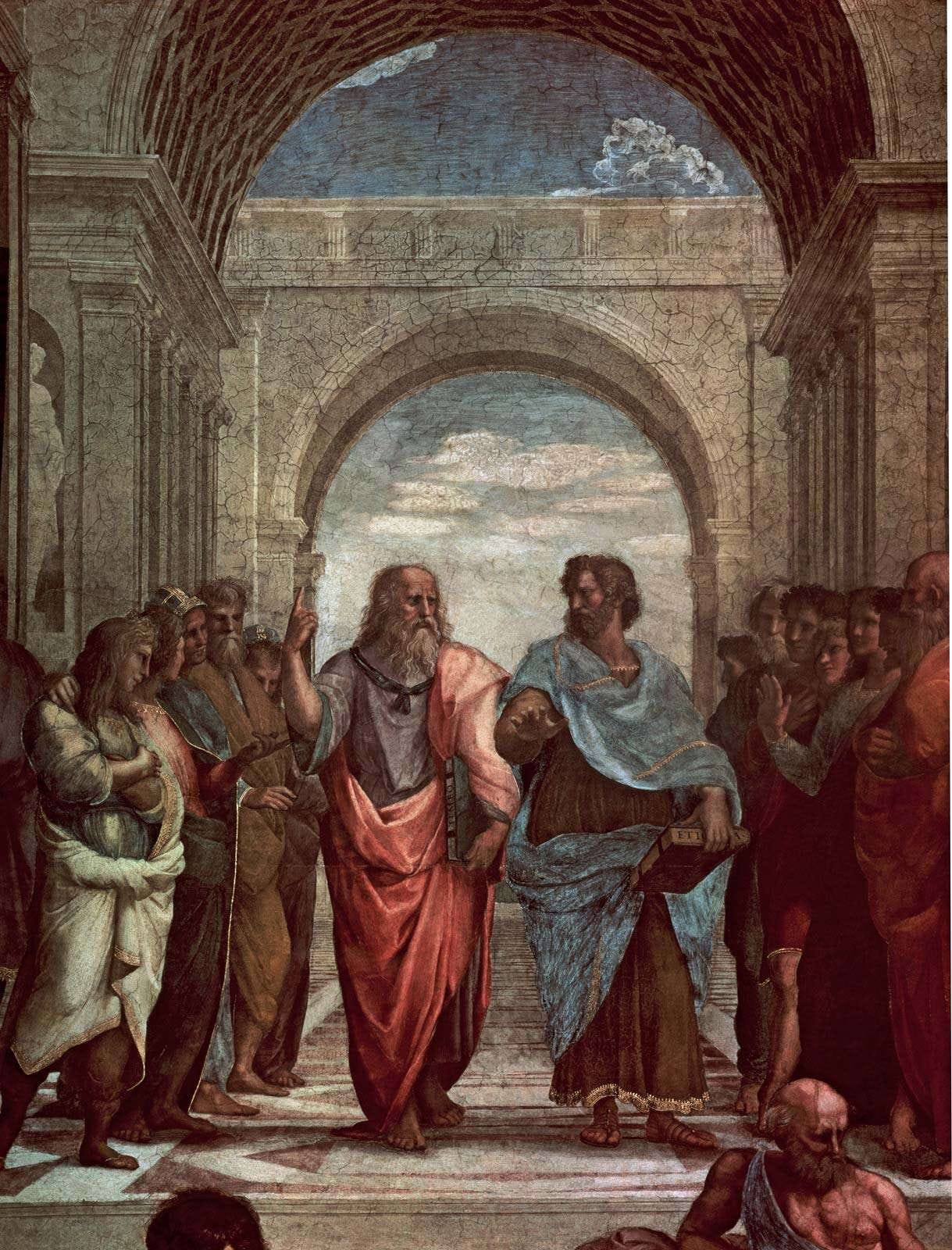Anyone who is interested in the history of ideas and their impact on western culture should head over to The Dove and Rose for a great post by my friend Walter titled “Our Problem is Philosophy not Theology”. Walter writes that the Catholic Church’s pivot in the 13th century away from Platonism and towards a more Aristotelian orientation caused the first hairline cracks of fragmentation that would eventually rupture in the modern Church—and indeed, the wider secular culture. Drawing on Arthur Herman’s excellent history, “The Cave and the Light”, Walter claims it was the subtle alteration of the Church’s philosophical lens from Platonism to Aristotelianism that began to subvert medieval notions of divine natural order and ultimately ushered in the Age of Revolution, in which we are arguably still living today.
Walter is writing from a position of theological and historical concern, but I think revisiting the age-old rivalry between Plato and Aristotle can be a useful exercise of self-reflection. Someone once said that every person’s thinking naturally gravitates towards one of these two philosophical orientations, even if one is unaware of the distinction: either Plato’s theory of Forms, in which reality is grounded to the degree it conforms to the intelligible realm of Ideas; or Aristotle’s metaphysics and natural philosophy, with their emphasis on causation, logic, and classification. Of these two systems of thought, today we might characterize Plato’s philosophy as abstract and even mystical, and Aristotle’s as scientific and pragmatic. Another way of saying it is that Plato’s thinking moved along a vertical plane, while Aristotle explored the horizontal.

Some years ago in graduate school, I announced to my husband out of the blue one day, “Honey, just so you know, we’re Aristotelians.” He was unfazed as usual, having become accustomed after many years of marriage to my occasional flights of fancy. He didn’t even bother to ask what had prompted my sudden desire to self-identify with Aristotle. (For the record it was because my philosophy mentor, the late Rev. James V. Schall, was himself an Aristotelian.) Being that I also admired St. Thomas Aquinas (who famously revived interest in Aristotle during the Scholastic period of the late Middle Ages), it seemed natural for me to align with the Philosopher (as Aquinas called him). Aristotle was just so…clear-headed. Orderly. Insightful. These were all intellectual qualities that I admired and coveted.
After more than two years of reading classical texts with Online Great Books, however, I think I’m having an identity crisis. Not that I don’t still admire Aristotle, whose masterful Nicomachean Ethics and Politics we’ve just finished reading over the last few months. However, having spent most of the previous year reading the dialogues of Aristotle’s former teacher and eventual rival (i.e. Plato), I realize I am more naturally inclined toward the world of Forms than the world of scientific classification. Perhaps its just a temperament thing, I’m not sure. But when I look at the world, I see it in analogical and mythical terms. Symbols, patterns…and yes, forms
Lest the reader find this distinction an arbitrary or semantic one, let me reassure you that what we’re talking about is nothing less than the great philosophical “tug-of-war” that has been at the heart of western culture ever since the two men walked the streets of Athens side by side, as portrayed in Raphael’s famous painting. Which is, of course, the point of Walter’s article and Herman’s book. In my OGB seminar, this division has been on full display in each member’s response to our monthly readings. One of my seminar mates appeared to have an outright aversion to Plato (or rather, Socrates—but it’s hard to know where Socrates ends and Plato begins.) His frustration with the readings was on full display during our Plato period. Meanwhile, I was in poetic raptures during some of the Symposium and Timaeus readings. To each his own, I guess.
So, now it’s your turn: whose camp are you in? Plato’s or Aristotle’s? I was just thinking that someone should make a quiz to help us discover our philosophical orientation. And guess what! Someone did. Please take 5 minutes and complete this quiz and then report your results in the comment box. Thanks for reading!





I think true Platonism is at odds witch Christian theism as nothing eternal can be distinct from God. I actually think that Augustine and Aquinas together offer a more proper conception, namely, that the forms are actually the immutable ideas (thoughts) of God rather than in some other realm to which God must look for a pattern of creation (which I take to be Plato’s thesis). So if we take this Christianized view of the Forms then Plato may largely be right. But then there is no inherent contradiction between this view and that of Aristotle’s in my opinion. The forms may have an existence separate from particulars and matter but also be instantiated into particulars by the Creator. So then the Forms are in the mind of God eternal and also present by creation in the material world by participation.
Hi there Amy! Guess what-I’m a Platonist! That was a fun quiz but I am honestly quite the contemplative type. Thanks for the article, brilliant as always.